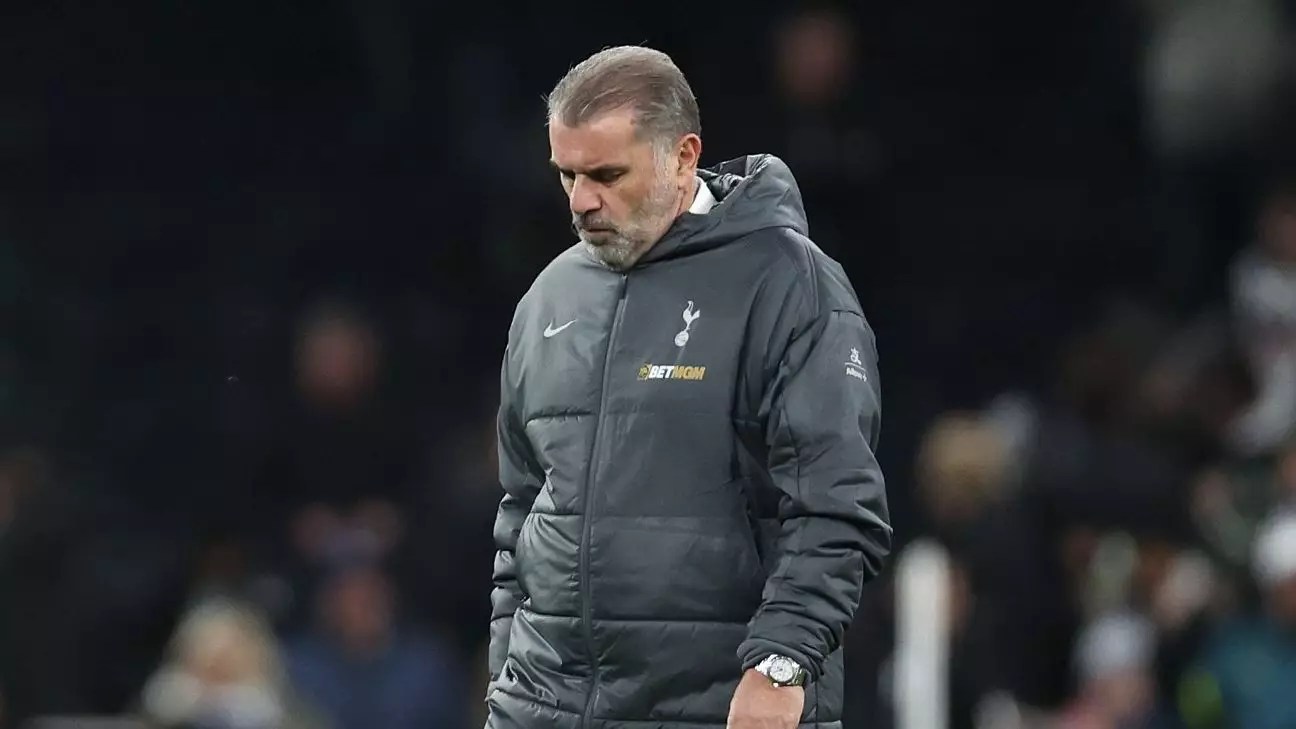In the ever-competitive landscape of the Premier League, coaching philosophies often come under scrutiny, especially when results are not favorable. Ange Postecoglou, the manager of Tottenham Hotspur, recently found himself at the center of such scrutiny following a disappointing 6-3 loss to Liverpool, the league leaders. However, instead of capitulating to criticism, Postecoglou has doubled down on his attacking philosophy, highlighting an intriguing blend of resilience and commitment to a long-term vision.
Postecoglou’s approach has not only been about aesthetics; it underscores a fundamental belief in a proactive style of play. This belief was distinctly visible even amidst the chaos on the pitch during the match against Liverpool. Despite the result, the match showcased glimpses of Tottenham’s attacking threats, including a commendable effort by James Maddison to reduce the deficit with a well-placed goal. However, defensive frailties were alarmingly visible, with the team conceding a staggering 15 goals over a mere six-game span, a statistic that would typically spell trouble for any manager.
The question arises: what are the underlying causes of this defensive malaise? While injuries to key players like goalkeeper Guglielmo Vicario and defenders Micky van de Ven and Cristian Romero cannot be overlooked, the issue extends beyond mere personnel. Postecoglou argues that the mental fabric of the team should also be taken into account. His assertion is simple yet profound: an attacking mindset does not just concern offensive players, but it is also essential for defenders, who are tasked with joining the offensive charge.
Amid the incessant questioning, Postecoglou exhibited notable fortitude. He expressed frustration over what he perceives as a lack of understanding from outsiders regarding the tactical challenges facing his squad. “If people can’t see the obvious, I’m not going to point it out,” he remarked, suggesting that the nuances of tactical approach might be lost on some observers. His comments challenge the simplistic interpretation of football management, which often leaves no room for the complexities that arise in high-stakes environments.
Moreover, Postecoglou’s choice to abandon discussions about his approach reflects a deeper philosophy at play. Management in sports is not simply about reacting to results; it is about imparting a culture and belief system that fosters long-term growth. He believes that hollow criticisms only serve to distract from a larger vision he has for the team. In reinforcing his attacking style, even in tough times, Postecoglou aims to embed a resilient mindset that will theoretically yield better results over time.
Long-term Commitment to Vision
Postecoglou’s patience and commitment to his attacking style lead to an examination of what success looks like in football. For him, the benefits of an upfront, aggressive style outweigh the potential short-term losses. In his perspective, the long-term vision is essential not just for current players but also for cultivating the next generation of talent, creating an identity associated with Spurs football.
One might argue that teams should adapt to their situation, especially when injuries are rife and form dips. However, Postecoglou’s refusal to “flip a switch” indicates his belief that consistency in playing style is crucial, even amid adversity. He emphasizes understanding the difficulties inherent in squad management, suggesting that athletes need time to adapt to a shared philosophy, which can take far longer than just a few match weeks.
The Path Forward: Building Towards Success
The current state of affairs for Tottenham, sitting at 11th in the Premier League, calls for reflection. While the club’s immediate future may look rocky, Postecoglou’s approach has merit. In an age where short-term success often overshadows long-term development, his insistence on staying true to an attacking style could lay the foundation for exciting football and eventual victories.
As he continues to navigate the team through its presenting challenges, Postecoglou’s journey illustrates a significant facet of football management: the balance between instant results and a long-term vision that fosters a strong club identity. His loyalty to his methods, even in troubled waters, may ultimately redefine Spurs’ narrative in years to come. In the cutthroat world of football, embracing one’s philosophy in times of difficulty might just be the key to turning the tide.


Leave a Reply